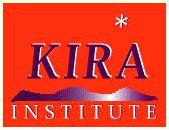
 |
Inquiry
|
As a methodology for acquiring and sharing knowledge, science is unprecedented in its universality and in its ability to correct its own mistakes. This allows the collective intelligence of the scientific community to transcend the limitations of individual scientists. Now with the development of the Internet and the decentralization of technical knowledge (the open source movement being a good example) we are at the threshold of an even more universal, transparent and democratic form of scientific knowledge.
The sciences have been remarkably successful in the study of matter, life and information. However, they have had limited bearing on issues that are at the heart of human experience, such as meaning and value. One could say that the question of reality as such has hardly been explored by science. These questions have traditionally been the province of philosophy and religion and have also been explored by literature and art.
The world's religious, philosophical and artistic traditions have accumulated deep insights into the nature of reality. These insights were refined over generations and have affected countless human lives. Religions do not have the perceived universality of modern science, due to factors such as hierarchical power structures, dogmatic belief systems, lack of a common methodology, and geographical isolation. Philosophy is now a highly specialized discipline, which often addresses problems that are internal to it.
We believe that it is possible to integrate the insights of the
great
religious and philosophical traditions with the dynamism and
transparency of science, so as to develop a fresh approach to the
major questions concerning reality and human experience.
![]()
Back to main page.